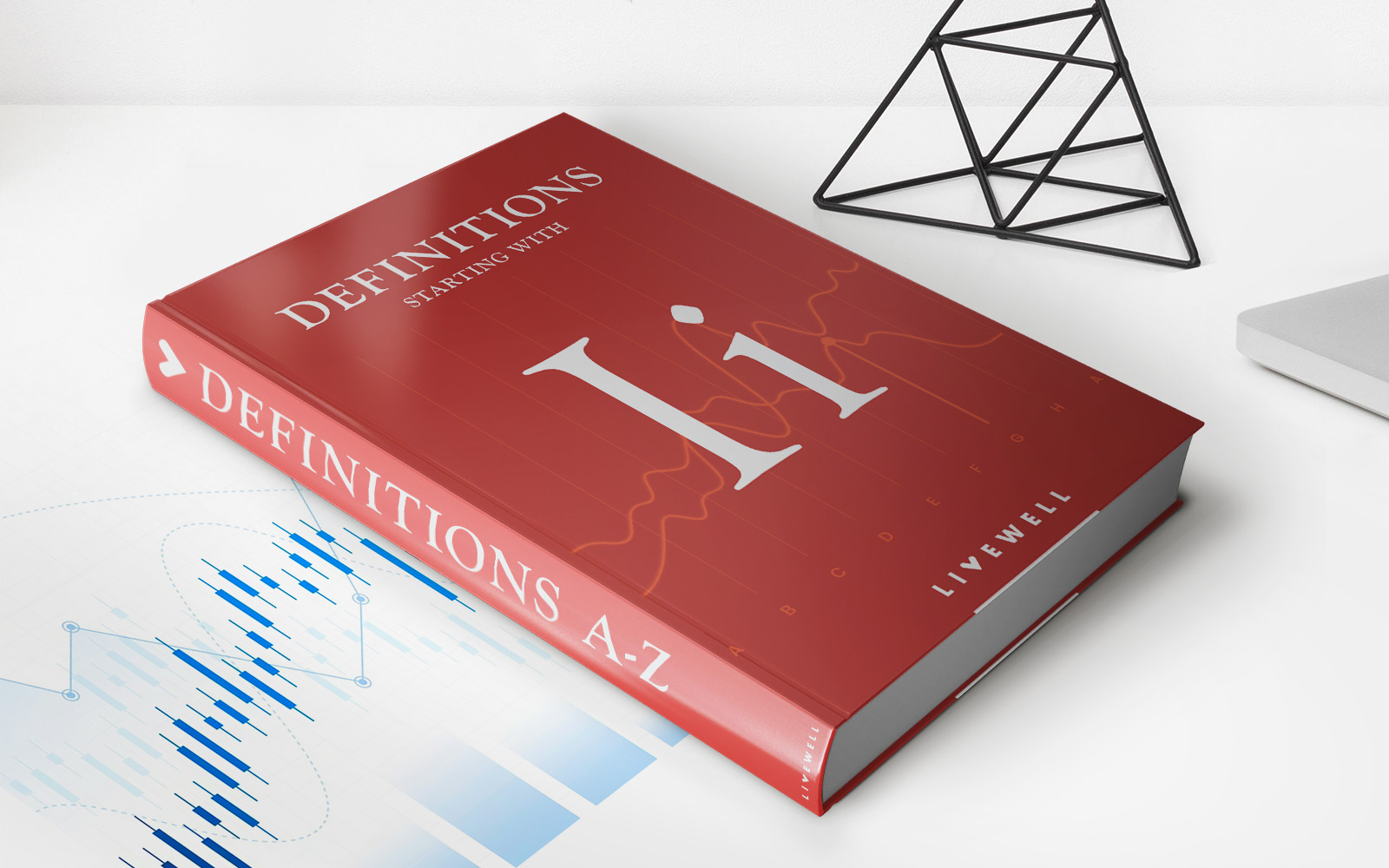

Finance
How Much Should Title Insurance Cost?
Modified: February 21, 2024
Find out the average cost of title insurance and ensure your financial security. Protect your investments with affordable title insurance options.
(Many of the links in this article redirect to a specific reviewed product. Your purchase of these products through affiliate links helps to generate commission for LiveWell, at no extra cost. Learn more)
Table of Contents
Introduction
Welcome to the world of title insurance. Whether you are a first-time homebuyer or a seasoned real estate investor, understanding title insurance and its associated costs is crucial. Buying a home is a significant financial investment, and protecting that investment is essential in the long run.
Title insurance is a type of indemnity insurance that safeguards property owners and lenders against any potential financial loss resulting from defects in the property’s title. These defects may include errors or omissions in public records, unknown liens, encroachments, or undisclosed heirs claiming ownership rights. By obtaining title insurance, homeowners attain peace of mind, ensuring that they have a clear and marketable title.
When it comes to determining the cost of title insurance, several factors come into play. It’s important to know what influences the price and how you can navigate through the options to make an informed decision. In this article, we will delve into the factors affecting title insurance costs, how premiums are calculated, and provide some tips on how to save money on title insurance.
Understanding the intricacies of title insurance will empower you as a homebuyer, enabling you to make confident decisions throughout the closing process. So, let’s dive into the world of title insurance and explore how much it should cost.
Understanding Title Insurance
Before we delve into the cost of title insurance, it’s important to have a solid understanding of what title insurance is and why it’s necessary. Title insurance is a type of insurance that protects both homebuyers and lenders from any financial losses that may arise due to defects in the property’s title.
A title is the legal ownership of a property. Title insurance provides protection against issues such as undiscovered liens, fraud, errors in public records, encroachments, missing heirs, or other legal complications that may arise after the property is purchased. Without title insurance, you may be at risk of financial loss and potential legal battles.
There are two types of title insurance: owner’s title insurance and lender’s title insurance. The owner’s title insurance policy safeguards the property owner’s interests and investment. The lender’s title insurance policy protects the lender’s interests in case of any title defects that may affect the validity or enforceability of the mortgage.
It’s important to note that title insurance is a one-time premium payment that is typically paid at the closing of the property purchase. Unlike other types of insurance, such as home insurance, which require ongoing monthly or annual payments, title insurance provides coverage for as long as you own the property.
When purchasing a property, a title search is conducted to ensure that the title is free of any issues. However, even the most thorough title search may not uncover all potential problems or defects. This is where title insurance becomes invaluable, as it provides protection against any unknown issues that may arise in the future.
Now that we have a basic understanding of what title insurance is, let’s explore the various factors that can influence the cost of title insurance.
Factors Affecting Title Insurance Cost
Several factors can influence the cost of title insurance. It’s important to consider these factors when budgeting for your property purchase. Here are some of the key factors that can impact the price of title insurance:
- Property Value: The value of the property plays a significant role in determining the cost of title insurance. Generally, the higher the property value, the higher the insurance premium will be.
- Location: The location of the property can also affect the cost of title insurance. Some areas may have a higher risk of title issues, such as complex zoning regulations or a history of fraudulent practices. Title insurers take these factors into account when calculating premiums.
- Loan Amount: If you’re obtaining a mortgage to purchase the property, the loan amount can impact the cost of lender’s title insurance. The insurance premium is often based on the loan amount, as the lender wants to ensure their investment is protected.
- Endorsements: Title insurance endorsements are additional coverages that can be added to the standard policy to provide more comprehensive protection. The cost of these endorsements varies and can increase the overall cost of title insurance.
- Previous Title Claims: If there have been previous title claims on the property, it can affect the cost of title insurance. Insurers may consider the property a higher risk, leading to higher premiums.
- Title Insurance Company: Different title insurance companies may have different rates and pricing structures. It’s important to shop around and compare quotes from multiple companies to ensure you’re getting the best coverage at the most competitive price.
It’s essential to keep in mind that the cost of title insurance may vary depending on these factors, and it’s advisable to consult with a title insurance professional who can provide you with accurate estimates based on your specific situation.
Now that we understand the factors that can affect the cost of title insurance, let’s explore how title insurance premiums are calculated.
How Title Insurance Premiums are Calculated
Calculating title insurance premiums involves evaluating several factors specific to the property and the parties involved in the transaction. While the specific formulas and calculations may vary between title insurance companies, here are some common elements that influence the premium:
- Property Value: The value of the property is a significant factor in determining the title insurance premium. Higher-value properties tend to have higher premiums.
- Loan Amount: For lender’s title insurance, the loan amount is often considered when calculating the premium. The higher the loan amount, the higher the premium.
- Policy Type: There are different types of title insurance policies, such as owner’s policies and lender’s policies. The type of policy selected will affect the premium.
- Location: The location of the property can impact the premium. Some areas may have higher risks or additional requirements that may increase the cost of insurance.
- Endorsements: Adding endorsements to the policy for additional coverage will increase the premium. The cost of endorsements varies depending on the specific coverage provided.
- Underwriting Process: The underwriting process involves assessing the property’s title history, conducting a title search, and identifying any potential issues. The complexity of this process can affect the premium.
To calculate the premium, title insurance companies typically have set rates that are based on a percentage of the property’s value or loan amount. These rates can vary depending on the state, as regulations and market conditions play a role in determining the rates. It’s essential to obtain quotes from multiple title insurance companies to compare premiums and find the best value for your specific needs.
It’s worth noting that while title insurance premiums may seem like a significant upfront cost, they provide long-term protection for the property owner and lender. By paying the premium, you can have peace of mind knowing that you are protected against any future title issues that may arise.
Now that we have explored how title insurance premiums are calculated, let’s move on to discussing the average costs of title insurance.
Average Costs of Title Insurance
The cost of title insurance can vary depending on several factors, including the property’s value, location, policy type, and endorsements. It’s important to note that title insurance costs are not standard and may differ between states, title insurance companies, and specific transactions. However, understanding the average costs can provide a general idea of what to expect.
In the United States, title insurance premiums are typically a one-time payment made at the closing of a property purchase. The premium is based on the property’s value or the loan amount, depending on the type of policy being issued.
On average, owner’s title insurance can range from 0.5% to 1% of the property’s purchase price. For example, if you are purchasing a home for $300,000, the owner’s title insurance premium could range from $1,500 to $3,000.
On the other hand, lender’s title insurance is usually based on the loan amount. The premium typically falls between 0.5% and 1% of the loan amount. For instance, if you are obtaining a mortgage of $200,000, the lender’s title insurance premium may range from $1,000 to $2,000.
It’s important to consider that each policy may have additional endorsements, which can increase the cost of title insurance. These endorsements provide additional coverage for specific risks or issues that may be present in the transaction. The cost of endorsements can vary depending on the coverage and the insurer’s rates.
Remember, these figures are just averages, and the actual cost of title insurance can vary depending on your specific circumstances. It’s vital to obtain quotes from different title insurance companies and compare the premiums and coverage provided to make an informed decision.
Now that we have explored the average costs of title insurance, let’s move on to the next section to discover some tips on shopping for title insurance.
Shopping for Title Insurance
When it comes to purchasing title insurance, it’s crucial to shop around and compare quotes from different title insurance companies. Here are some tips to help you navigate the process and make an informed decision:
- Research Title Insurance Companies: Start by researching reputable title insurance companies in your area. Look for companies with a solid track record, positive customer reviews, and high financial stability ratings.
- Get Multiple Quotes: Reach out to several title insurance companies and request quotes for both owner’s and lender’s title insurance. Be sure to provide them with the necessary information regarding the property and the transaction to receive accurate quotes.
- Compare Coverage and Exclusions: As you review the quotes, carefully examine the coverage provided by each policy. Look for any exclusions or limitations that may impact the scope of protection offered. Read the policies thoroughly and ask questions if anything is unclear.
- Consider Endorsements: If you require specific endorsements to address potential risks or issues, inquire about their availability and cost. Evaluate the value of these endorsements based on your unique circumstances.
- Evaluate Costs and Services: While the premium is an important consideration, don’t solely focus on cost. Take into account the reputation and customer service of the title insurance company. Look for a balance between competitive pricing and excellent service.
- Consult with Professionals: Seek guidance from your real estate agent, attorney, or mortgage lender. They can provide recommendations and insights into reputable title insurance providers in your area.
- Ask for Discounts: Inquire about any available discounts or promotions. Some title insurance companies may offer discounts if you are buying both owner’s and lender’s policies from them or if you are a repeat customer.
By following these tips, you can gather the necessary information to make an informed decision when selecting a title insurance provider. Remember that title insurance is a vital aspect of protecting your investment, and choosing a reliable and reputable company is crucial.
Now let’s explore some tips on how to save money on title insurance.
Tips to Save Money on Title Insurance
While title insurance is an important investment to protect your property and financial interests, there are ways to potentially reduce the cost. Here are some tips to help you save money on title insurance:
- Shop Around and Compare Quotes: As mentioned earlier, obtaining quotes from multiple title insurance companies allows you to compare premiums and find the most competitive rates.
- Bundle Policies: Inquire about discounts for bundling your owner’s and lender’s title insurance policies from the same company. Many insurers offer discounts when both policies are purchased together.
- Negotiate the Premium: Just like any other insurance, the premium may be negotiable. Ask the title insurance company if there is any flexibility in the pricing and see if you can secure a better deal.
- Consider the Reissue Rate: If you are purchasing a property within a certain timeframe since the previous owner’s policy was issued, you may be eligible for a reissue rate. This can offer significant savings on your title insurance premium.
- Ask for Referrals: Reach out to your real estate agent, attorney, or other professionals involved in the transaction for recommendations on title insurance providers who offer competitive rates and exceptional service.
- Review the Title Commitment: Carefully review the title commitment, which outlines any requirements or exceptions related to the property’s title. Addressing any issues or exceptions before closing can potentially save you money in the long run.
- Keep Your Closing Date in Mind: Some title insurance companies may offer discounts if the closing occurs within a certain timeframe. Be aware of any time-sensitive incentives and plan your closing accordingly.
- Ask About Available Discounts: Inquire about any additional discounts available, such as discounts for specific professions or memberships in certain associations. These discounts may not be widely advertised, so it’s worth asking.
By implementing these tips, you have the potential to save money on your title insurance premium. However, while cost-saving is important, it’s crucial not to compromise on the quality and reliability of the title insurance company. Always ensure that you are getting the necessary coverage to protect your property and financial interests.
Now let’s conclude our discussion on title insurance.
Conclusion
Understanding title insurance and its associated costs is crucial for homeowners and property buyers. While the cost of title insurance can vary based on factors such as property value, location, policy type, and endorsements, it is a one-time premium payment that provides long-term protection for your investment.
By comprehending the factors that influence title insurance costs, such as property value, loan amount, and endorsements, you can better estimate and budget for the premium. Shopping around and obtaining quotes from multiple title insurance companies allows you to compare rates and coverage to ensure you’re getting the best value for your specific needs.
When considering title insurance, remember to prioritize the reputation and customer service of the insurer. While cost-saving is important, it’s crucial to choose a reputable company that will provide you with comprehensive coverage and support throughout the closing process.
By following the tips to save money on title insurance, such as bundling policies, negotiating the premium, and exploring available discounts, you can potentially reduce the overall cost while still enjoying the protection and peace of mind that title insurance offers.
In conclusion, title insurance is an essential aspect of safeguarding your property investment and protecting yourself from potential title defects. Educate yourself on the intricacies of title insurance, consider the factors that influence costs, shop around for quotes, and make an informed decision based on your specific needs and circumstances.
By doing so, you can confidently navigate the closing process, knowing that you have taken the necessary steps to secure your property’s title and financial future.














